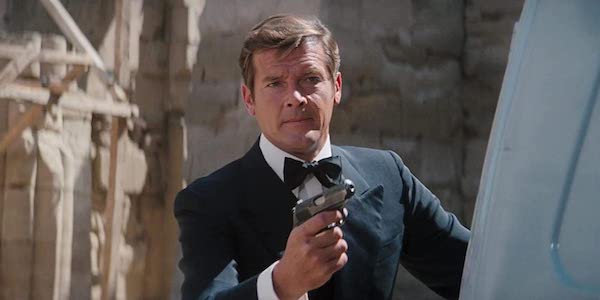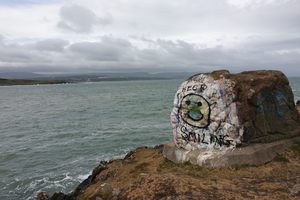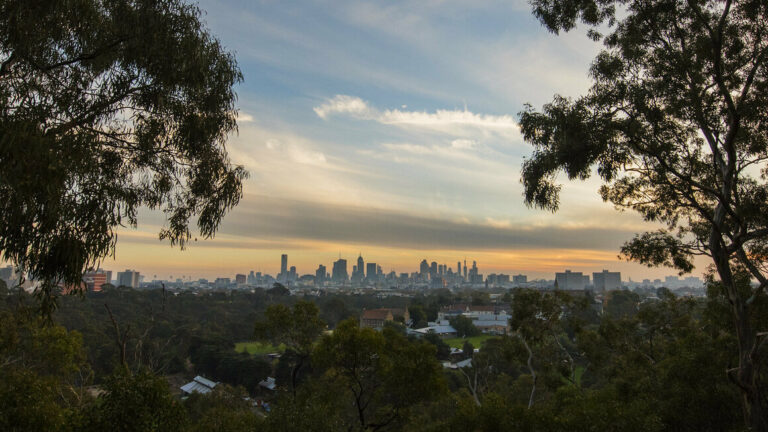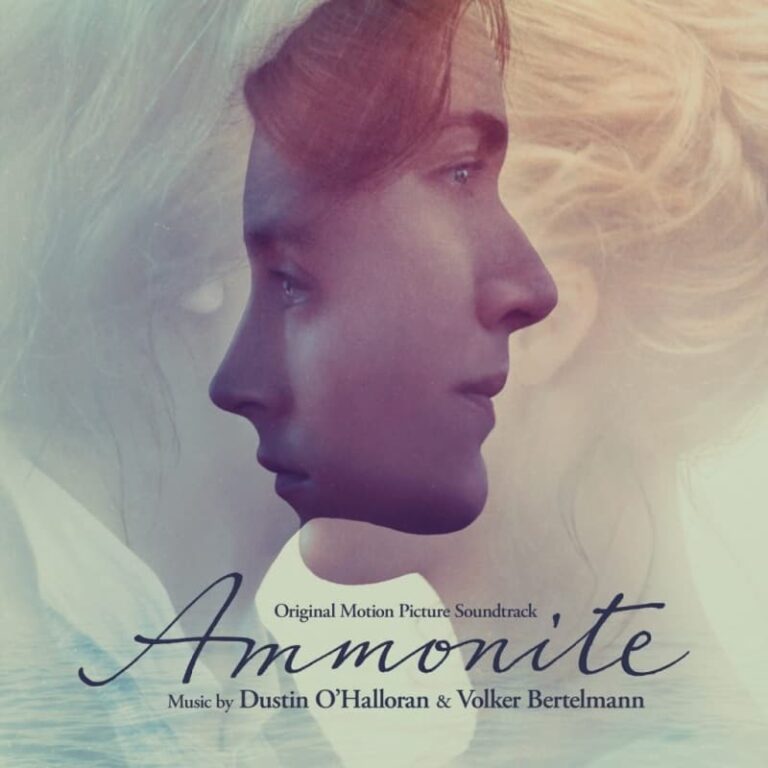George Maciunas Square in Kaunas, Lithuania
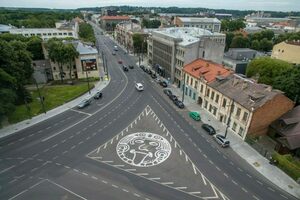
East of the Old Town of Kaunas, a mere five minutes from the blue-domed, Neo-Byzantine St. Michael the Archangel Church, lies a small, triangular square with an Aztec symbol painted on the ground. This unique traffic island is surrounded by three busy streets; you can’t access it, you can barely even see it from street level. And that is the point.
George Maciunas Square—aptly dubbed the world’s first invisible square—is a suitably curious homage to the Lithuanian-American artist who pioneered the Fluxus movement in the 1960s. Rooted in experimental performances, Fluxus promoted nonsensical ideas and opened up the meaning of what art can be.
The square is a nod to Maciunas’s legacy. It’s invisible, it’s inaccessible, and it’s located right across from the house where he grew up. The Aztec-style motif painted on the ground—an ornate face with a tongue extended—evokes a logo for a Carnegie Hall concert flyer that Maciunas designed in 1965. The whole thing evokes the spirit of Maciunas, but it is the work of another Lithuanian artist, Naglis Rytis Baltušnikas.
Opened in 2017, George Maciunas Square was created as part of “Kaunas Highlights,” a contest run by the Kaunas City Municipality that encourages artists to submit their ideas for public spaces. Other highlights around the city include “Star Seeder,” an illegal graffiti-turned-permanent installation at Vytautas the Great War Museum sculpture garden, and “Planet X,” a sculpture in the VMU Kaunas Botanical Garden that is shaped like the asteroid from Antoine de Saint-Exupéry’s The Little Prince.
